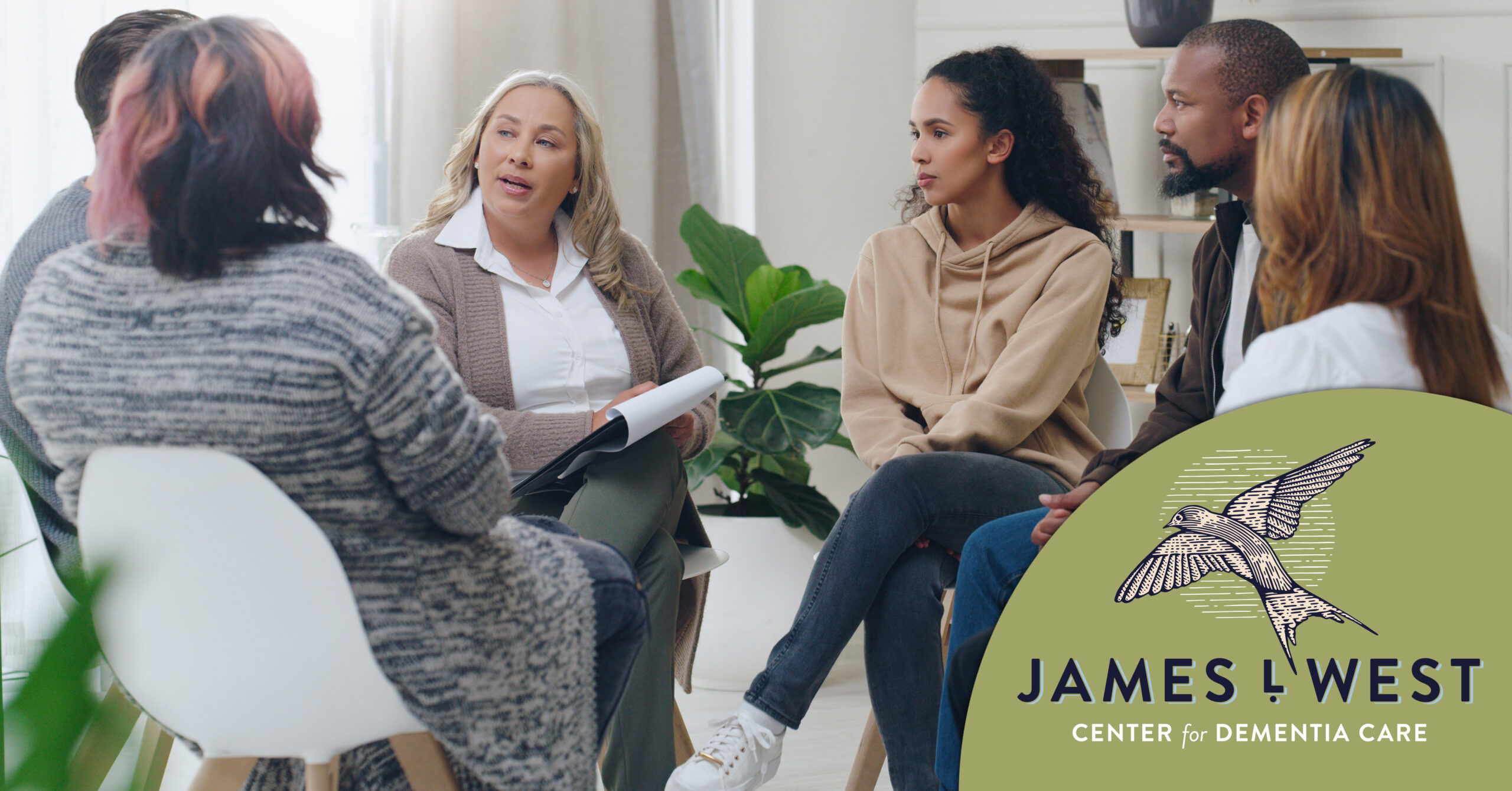Addressing caregiver health needs is vital to their ability to care for a loved one and maintain or improve their own health.
Dementia caregivers often find themselves at the bottom of their priority lists, placing their own health at risk of serious decline.
“There’s five to six areas that we focus on for health,” said Hollie Glover, director of education and family support services for the James L. West Center for Dementia Care.
Physical, social, emotional, spiritual, intellectual and occupational health are all at risk when caring for a loved one with dementia.
A lack of sleep, poor diet, high stress and missing doctor’s appointments are all common among dementia caregivers, Glover said.
“Caregivers end up in a pattern where they’re reacting rather than responding to their own needs,” Glover said. “They are not very good at keeping their medical appointments. Sleep is not a priority. Eating well is not a priority. Doing something to manage stress is not a priority.”
Higher levels of stress, anxiety, depression and other mental health issues are common among family members who are caring for a loved one with dementia or another terminal illness.
Finding support for the caregiver
Caregiver support groups are an important part of improved mental health for many caring for a loved one. Glover recently asked participants in the support groups at James L. West why they participate in a support group.
“It’s my lifeline.”
“Other people are going through the same thing. I’m not alone.”
“I think finding a really good support group, people who can hear you without trying to give any advice, is so vital,” Glover said. “They really listen to you and hear you, and nobody judges. It’s safe, and you can say what you need to say.”
And the best part is no one is telling you what you should or shouldn’t do to care for your loved one, she said.
Learning that you can ask for help is another type of support that caregivers may be reluctant to pursue. Often, the caregiver’s children want to be asked to help and serve their parents in this role.
“Your kids are not mind readers, and you’ve probably been telling them that everything is okay for months. Sit down and have a family meeting and tell them what’s going on,” Glover said. “You aren’t a burden to your children. This is their mama or their daddy, and they want to spend time with them.”
Managing Caregiver Stress
The James L. West Education team offers a number of free training sessions for family caregivers to manage stress to improve caregiver health.
“Educate yourself about dementia,” said Jaime Cobb Tinsley, vice president for dementia and caregiver education. “Education can cure a lot of things.”
James L. West offers courses on caregiving, including how to manage stress and self-care. The classes explore tactics like journaling, breathing exercises, the value of stepping away for a minute, meditation, yoga and much more.
“You’ve got to physically be able to take care of yourself so you can care for your loved one,” Cobb Tinsley said. “Go to your doctor’s appointments and make sure you’re taking your medications properly. Exercise and eat right.”
She said it’s easy to let your ego tell you that you can do it, and you’re the only one who can, but your body will start to shut down. Taking care of yourself also reduces your own risk of developing dementia down the road.
Another way to reduce stress is to make time to connect to your loved one when you’re not taking care of them. Glover said planning time to do something you enjoyed together, watching a beloved TV show, or just sitting quietly together are ways to be connected outside the caregiver role.
Listening to music is another idea for creating points of connection outside of caregiving. Even if your loved one wasn’t musical, core memories are tied to the music of their youth and your shared history together.
Cobb Tinsley said involving your loved one in the things you need to do to care for yourself is another way to connect. Want to go for a walk? Take your loved one with you. Time to make dinner? Involve your loved one in the preparations. Take your medications together.
Avoiding unhealthy coping mechanisms
Not all self-care strategies are healthy. It’s important to stay aware of how you’re coping and whether those coping mechanisms are creating new health problems.
For example, are you drinking more than one glass of wine at the end of the day? Did you pick up smoking after quitting years ago? Do you take comfort in online shopping or eating?
“These are all things we turn to at a time of stress that we can overdo and then it gets us in trouble,” Glover said. “We turn to these things because we feel like we have control over them.”
Being aware of those triggers and taking steps to manage stress in other ways can help keep your health on track.
Finding joy in gratitude
Every day is different as a caregiver, and not all days are good. Looking for the small victories in each day and being grateful for them can boost your mental health. Look for moments of joy to build gratitude and memories.
“Whether you call it gratitude or you call it a win, recognizing those moments that went right helps build resilience,” Glover said.
Running through those moments before bed can help settle your mind so you can sleep better. Start the day reviewing what went right the day before to start you off on a positive note.
Supporting caregiver health
The important thing is to be intentional about putting some of these coping strategies into practice and starting to put your own health first so you can be the best caregiver possible for your loved one living with dementia.
For a calendar of free support group meetings and educational sessions, visit our Education Calendar.

